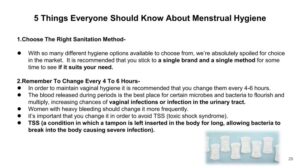
Integrative medicine stands at the intersection of traditional and modern healthcare, offering a comprehensive approach that embraces the whole person rather than just isolated symptoms. It invites us to explore not just the ailments we face but also the lifestyle choices and emotional well-being that contribute to our overall health.
This practice combines various disciplines, from conventional medicine to alternative therapies, creating a personalized treatment plan that is as unique as the individual it serves. By recognizing the intricate connections between body, mind, and spirit, integrative medicine illuminates pathways to healing that are often overlooked in standard medical practices.
Integrative Medicine Overview

Integrative medicine represents a transformative approach in the healthcare landscape, emphasizing the interplay between conventional medical practices and complementary therapies. This holistic model has gained significant traction as patients increasingly seek a more comprehensive method to manage their health and well-being.At its core, integrative medicine focuses on the whole person rather than just the symptoms of a disease. It incorporates a range of modalities—including physical, emotional, social, and spiritual aspects—into the treatment plan.
This approach is built on several key principles, including patient-centered care, the use of evidence-based practices, and a commitment to preventive care. Integrative medicine aims not just to treat illness, but also to enhance overall health and prevent future ailments.
Examples of Integrative Practices in Health Settings
A variety of integrative practices have been successfully implemented in different healthcare environments, showcasing the versatility and benefits of this approach. These practices often combine traditional medical treatments with alternative therapies to provide a more rounded care experience:
- Acupuncture: Widely recognized for its effectiveness in pain management and treatment of various conditions, acupuncture has found its place in hospitals and clinics as a complementary therapy to traditional pain relief methods.
- Meditation and Mindfulness: These practices have been integrated into mental health programs to reduce stress and anxiety, improve emotional regulation, and promote overall mental well-being among patients.
- Nutrition Counseling: Health professionals are increasingly implementing dietary guidance tailored to individual patient needs, emphasizing the role of nutrition in disease prevention and management.
- Massage Therapy: This practice is often utilized in rehabilitation settings to aid recovery and enhance relaxation, demonstrating its effectiveness in reducing muscle tension and improving circulation.
- Yoga and Physical Activity: Incorporating physical movement into treatment plans has proven beneficial for patients recovering from surgeries or managing chronic illnesses, promoting physical and mental health simultaneously.
Integrative medicine serves as a bridge between conventional and alternative practices, creating a more extensive healthcare model that addresses diverse patient needs. This approach not only improves patient satisfaction but also fosters a sense of empowerment and control over one’s health journey.
Integrative Approaches in Specific Health Areas

Integrative medicine offers a holistic approach to health, blending conventional treatments with alternative therapies. This section delves into various health areas where integrative strategies can enhance outcomes, focusing on managing addictions, beauty concerns, child health, common conditions, fitness, mental health, nutrition, pharmacy practices, weight loss, and women’s health issues.
Integrative Strategies for Managing Addictions
Integrative medicine employs a multifaceted approach to tackle addiction, combining medical, psychological, and holistic therapies. Strategies often used include:
- Counseling and Psychotherapy: Therapies such as cognitive behavioral therapy (CBT) are combined with mindfulness practices to help individuals address the root causes of their addiction.
- Nutritional Support: A balanced diet aids the detoxification process and supports recovery, often incorporating whole foods rich in nutrients.
- Herbal Remedies: Natural supplements, like St. John’s Wort for depression, can be utilized in conjunction with traditional substances to ease withdrawal symptoms.
- Exercise Programs: Regular physical activity is encouraged to improve mood, reduce stress, and promote a sense of well-being.
Research has shown that individuals who engage in integrative addiction treatments often have better long-term recovery outcomes compared to those who use conventional methods alone.
Integrative Medicine for Beauty and Cosmetics Concerns
Integrative medicine addresses beauty and cosmetics through a comprehensive lens, focusing on overall health and well-being to achieve aesthetic goals. Approaches include:
- Nutrition: Emphasizing whole foods rich in antioxidants, vitamins, and minerals, which contribute to healthier skin, hair, and nails.
- Mind-Body Techniques: Practices such as yoga and meditation can reduce stress, which adversely affects skin health and aging.
- Natural Topicals: The use of herbal and organic products that nourish the skin without harmful chemicals.
- Acupuncture: This technique is often used to improve circulation and promote skin health.
Incorporating these practices can lead to enhanced natural beauty and improve self-esteem.
Integrative Practices in Enhancing Child Health Outcomes
Integrative medicine plays a significant role in pediatric health by employing diverse therapeutic modalities to foster healthy development. Key strategies include:
- Holistic Nutrition: Focus on whole foods that meet the developmental needs of children, supporting growth and immunity.
- Mindfulness and Stress Reduction: Techniques such as yoga tailored for children can enhance emotional regulation and resilience.
- Family Involvement: Engaging parents in treatment plans fosters a supportive environment, promoting better health outcomes.
- Alternative Therapies: Incorporation of therapies like chiropractic care for musculoskeletal issues and acupuncture for pain management.
These integrative approaches have shown to improve both physical health and emotional well-being in children.
Common Conditions Treated with Integrative Methods
Integrative methods are applied to manage a variety of common health conditions effectively. Examples include:
- Chronic Pain: Techniques such as acupuncture, massage, and mindfulness practices help alleviate pain and enhance functionality.
- Anxiety and Depression: Combining psychotherapy with nutritional counseling and physical activity can significantly improve mental health outcomes.
- Digestive Disorders: Integrative approaches such as probiotics, dietary adjustments, and stress management are beneficial.
- Cardiovascular Health: Lifestyle modifications, including diet and exercise, combined with stress reduction techniques, support heart health.
The integration of various therapies often leads to a more comprehensive treatment plan, addressing the condition’s root causes.
Impact of Integrative Medicine on Fitness and Physical Health
Integrative medicine positively influences fitness and physical health by promoting a balanced lifestyle. Essential components include:
- Personalized Exercise Plans: Tailored fitness programs that align with individual health needs and goals.
- Nutrition Counseling: Focus on whole foods and balanced diets that enhance energy levels and recovery.
- Mindfulness Practices: Incorporating yoga and meditation to reduce stress, which can sabotage fitness efforts.
- Holistic Assessments: Evaluations that consider physical, emotional, and environmental factors to create comprehensive health plans.
These strategies can lead to improved physical performance, weight management, and overall well-being.
Integrative Approaches and Mental Health Improvements
The intersection of integrative medicine and mental health has garnered attention for its effectiveness. Notable aspects include:
- Mind-Body Techniques: Incorporating practices like meditation, yoga, and tai chi significantly improves mental health and emotional balance.
- Herbal Supplements: Natural remedies, such as omega-3 fatty acids and adaptogenic herbs, are being researched for their benefits in treating anxiety and depression.
- Nutrition: Emphasizing a diet rich in whole foods can positively impact mood and cognitive function.
- Social Support: Integrative frameworks stress the importance of community and social connections in fostering mental wellness.
These approaches are becoming increasingly recognized for their role in enhancing mental health recovery.
Nutritional Guidelines from an Integrative Perspective
An integrative approach to nutrition emphasizes the consumption of whole foods while considering individual health needs. Key guidelines include:
- Prioritize Whole Foods: Focus on unprocessed, nutrient-dense foods such as fruits, vegetables, whole grains, nuts, and seeds.
- Balanced Diet: Ensure a variety of food groups are represented to meet all micronutrient requirements.
- Mindful Eating: Encouraging awareness of hunger and satiety cues to foster a healthy relationship with food.
- Hydration: Emphasizing the importance of water intake for optimal body function and health.
These guidelines support overall health and well-being, promoting a lifestyle that nurtures both body and mind.
Incorporating Integrative Medicine Principles in Pharmacy Practices
Pharmacy practices are evolving to include integrative medicine principles, enhancing patient care through comprehensive approaches. Strategies include:
- Patient Education: Pharmacists provide guidance on the safe use of herbal supplements and their interactions with medications.
- Personalized Medication Management: Tailoring pharmaceutical care based on individual patient needs, including lifestyle factors and dietary considerations.
- Collaborative Care: Working alongside healthcare providers to create holistic treatment plans that encompass both conventional and alternative therapies.
- Wellness Programs: Offering counseling on prevention and health promotion that includes integrative strategies.
These practices help create a more thorough healthcare experience that values the patient’s overall well-being.
Comprehensive Weight Loss Program Using Integrative Techniques
An integrative weight loss program focuses on sustainable lifestyle changes rather than quick fixes. Components of such a program include:
- Personalized Nutritional Plans: Tailoring diets to individual preferences and health needs, emphasizing whole foods.
- Regular Physical Activity: Designing an exercise regimen that is enjoyable and sustainable for long-term adherence.
- Behavior Modification: Incorporating techniques to change eating behaviors, such as mindful eating practices.
- Support Networks: Encouraging participation in groups or sessions that provide motivation and accountability.
This holistic approach is more likely to result in lasting weight loss and improved health.
Women’s Health Issues Addressed Through Integrative Medicine
Integrative medicine offers valuable strategies for addressing women’s specific health issues throughout different life stages. Key areas of focus include:
- Hormonal Balance: Utilizing natural therapies such as dietary adjustments and herbal supplements to manage symptoms associated with menopause.
- Reproductive Health: Combining conventional treatments with holistic therapies for conditions such as PCOS and endometriosis.
- Mental Health: Addressing anxiety and depression during pregnancy and postpartum periods through integrative practices.
- Preventive Care: Emphasizing the importance of routine screenings alongside lifestyle modifications to promote long-term health.
These integrative approaches empower women to take charge of their health and well-being.
Practical Implementation of Integrative Medicine
Integrative medicine combines conventional medical practices with alternative therapies to enhance patient care and outcomes. Implementing integrative practices in healthcare settings can significantly improve the holistic approach to patient wellness. Below is a detailed guide on how to effectively incorporate these practices into a healthcare environment.
Step-by-Step Guide for Implementing Integrative Practices
Implementing integrative medicine effectively requires a structured approach. Here’s a step-by-step guide to help healthcare practitioners integrate these practices into their systems:
- Assess Current Practices: Evaluate existing healthcare practices to identify areas where integrative approaches can be beneficial.
- Engage Stakeholders: Involve healthcare providers, administrative staff, and patients to gain insights and support for integrative practices.
- Identify Integrative Modalities: Research and select appropriate integrative therapies, such as acupuncture, nutrition, meditation, or yoga, that align with patient needs.
- Develop Training Programs: Create training sessions for healthcare professionals to understand and apply integrative modalities competently.
- Create Protocols: Establish standardized protocols for the implementation of integrative practices to ensure consistency and safety.
- Communicate with Patients: Educate patients about the benefits of integrative medicine and involve them in the creation of their treatment plans.
- Monitor and Evaluate: Continuously assess the effectiveness of the integrative practices and make necessary adjustments based on patient feedback and outcomes.
Resources for Practitioners Interested in Integrative Medicine
Practitioners looking to delve deeper into integrative medicine can benefit from various resources that provide knowledge, training, and support.
- Books: “Integrative Medicine: Principles for Practice” by Andrew Weil and “The Integrative Medicine Handbook” offer foundational knowledge.
- Online Courses: Websites like Coursera and the National Center for Complementary and Integrative Health (NCCIH) provide courses on various integrative practices.
- Professional Organizations: Joining groups such as the American Holistic Medical Association (AHMA) or the Integrative Medicine Consortium offers networking opportunities and resources.
- Conferences: Attending integrative medicine conferences allows practitioners to learn from experts and share experiences with peers.
- Peer-reviewed Journals: Journals like “Integrative Medicine Research” and “The Journal of Alternative and Complementary Medicine” keep practitioners updated on the latest research.
Creating Personalized Treatment Plans Using Integrative Modalities
Personalized treatment plans are essential in integrative medicine, as they cater to the unique needs of each patient.
“The aim of personalized treatment is to consider the whole person—not just their symptoms.”
To create a personalized plan, consider the following:
1. Comprehensive Assessment
Conduct a thorough evaluation that includes medical history, lifestyle factors, and patient preferences.
2. Collaborative Approach
Involve the patient in decision-making to ensure their values and goals are prioritized in the treatment process.
3. Integration of Modalities
Combine conventional treatments with complementary therapies, such as nutrition counseling alongside pharmacological interventions.
4. Ongoing Monitoring
Regularly review and adjust the treatment plan based on patient progress and feedback to ensure effectiveness and satisfaction.
Challenges in Adopting Integrative Medicine and Proposed Solutions
Adopting integrative medicine may present several challenges, but understanding and addressing these can facilitate a smoother transition.
- Lack of Familiarity: Many practitioners may be unfamiliar with integrative modalities. This can be addressed through comprehensive training programs and workshops to build confidence and competence.
- Insurance and Reimbursement Issues: Navigating insurance coverage for integrative therapies can be complex. Advocating for policy changes and providing clear documentation for the necessity of integrative treatments can help.
- Resistance from Conventional Practitioners: Some healthcare providers may resist integrative approaches. Fostering a culture of collaboration and evidence-based practice can bridge this gap.
- Resource Limitations: Some healthcare settings may lack resources for integrative therapies. Building partnerships with local wellness providers can supplement services offered.
Ongoing Education and Training Opportunities for Healthcare Professionals
Staying updated on integrative medicine practices is vital for healthcare professionals.
- Certification Programs: Various institutions offer certification programs in integrative medicine, providing in-depth knowledge and credentials.
- Workshops and Seminars: Regularly attending workshops and seminars keeps practitioners informed about the latest advancements in integrative therapies.
- Webinars: Online webinars and virtual conferences provide convenient access to expert insights and emerging trends in the field.
- Mentorship Opportunities: Connecting with experienced integrative medicine practitioners can provide valuable guidance and firsthand knowledge.
Last Recap
In summary, integrative medicine presents a refreshing perspective on health and wellness, encouraging a balance that many find beneficial. As we continue to explore this multifaceted approach, it becomes clear that embracing the synergy of various healing modalities can lead to improved health outcomes and a renewed sense of vitality.
Questions Often Asked
What is the primary goal of integrative medicine?
The main goal is to treat the whole person by addressing physical, emotional, and spiritual well-being rather than just symptoms.
Is integrative medicine safe?
Yes, when practiced by qualified professionals, integrative medicine can be safe and effective, often complementing traditional treatments.
How can I find an integrative medicine practitioner?
You can search online directories, ask your primary care physician for recommendations, or check with professional associations related to integrative health.
Can integrative medicine help with chronic conditions?
Yes, integrative medicine has been shown to effectively manage chronic conditions by incorporating various treatment modalities tailored to the individual’s needs.
What role does nutrition play in integrative medicine?
Nutrition is fundamental in integrative medicine, emphasizing whole foods and balanced diets to support overall health and healing.





